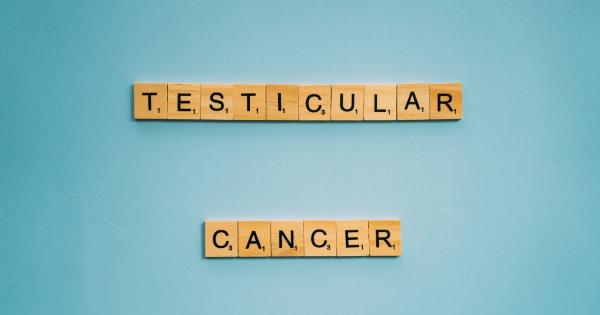Cancer is a serious health issue that affects millions of people worldwide, including men. While women are often encouraged to be proactive about their health, men tend to ignore warning signs and delay seeking medical attention.
Ignoring signs and symptoms of cancer can significantly impact the chances of successful treatment and recovery. Therefore, it is crucial for men to be aware of the warning signs of cancer and seek professional medical help promptly when necessary.
1. Unexplained weight loss
Sudden and unexplained weight loss can be an indication of various types of cancer, including lung, pancreatic, stomach, and esophageal cancer.
If you notice a significant reduction in your weight without making any changes to your diet or exercise routine, it is essential to consult a healthcare professional. Weight loss can occur due to cancer cells using energy or due to the body’s immune system fighting the disease.
2. Persistent fatigue
Experiencing constant fatigue or extreme tiredness that doesn’t improve with rest or sleep can be a warning sign of cancer. Persistent fatigue is often overlooked or attributed to a busy lifestyle, stress, or lack of sleep.
However, it can also be a symptom of blood cancers such as leukemia or lymphoma, as well as colon, stomach, or pancreatic cancer. If you regularly feel exhausted for no apparent reason, it’s crucial to discuss it with your healthcare provider.
3. Urinary and bowel changes
Changes in urinary and bowel habits can indicate various types of cancer, including prostate, bladder, and colorectal cancer.
Pay attention to symptoms such as blood in urine or stool, ongoing constipation or diarrhea, difficulty urinating, or changes in the frequency or urgency of bowel movements. These changes should not be ignored, especially if they persist for more than a few days.
4. Persistent pain
While occasional aches and pains are part of life, persistent or worsening pain should not be ignored, as it can indicate several types of cancer.
For example, persistent headaches can be a symptom of brain tumors, while back pain can be associated with prostate or colorectal cancer. Bone pain can indicate advanced prostate, breast, or lung cancer. It is essential to consult a healthcare professional to determine the cause of the pain and rule out any underlying conditions.
5. Changes in the skin
Changes in the skin can sometimes be an early warning sign of various types of cancer.
Pay attention to any unusual changes, such as darkening of the skin, jaundice (yellowing of the skin and eyes), excessive hair growth, or rapid changes in the shape, size, or color of moles. Skin cancer, including melanoma, can be highly treatable if detected early. Therefore, it is vital to regularly examine your skin and seek medical advice if you notice any concerning changes.
6. Difficulty swallowing or persistent indigestion
Experiencing difficulty swallowing or persistent indigestion can be a symptom of esophageal, stomach, or throat cancer.
While occasional heartburn or indigestion may not be a cause for concern, persistent and worsening symptoms should be evaluated by a healthcare professional. These symptoms may include frequent heartburn, regurgitation of food, unexplained weight loss, or pain or discomfort in the chest or abdomen.
7. Changes in the testicles
Any changes in the size, shape, or consistency of the testicles should not be ignored, as they can indicate testicular cancer. This type of cancer is most common in young and middle-aged men.
Regular self-examination of the testicles can help detect any abnormalities early on. If you notice lumps, swelling, pain, or any other changes in the testicles, it is essential to seek medical attention promptly.
8. Persistent cough or hoarseness
If you have a persistent cough that lasts for several weeks or develops a hoarse voice without any apparent reason, it could be a sign of lung, throat, or laryngeal cancer.
While many coughs are harmless and resolve on their own, persistent coughs without any other respiratory symptoms should be evaluated by a healthcare professional.
9. Persistent changes in the mouth
Persistent changes in the mouth, such as the development of white or red patches, sores, or lumps, can indicate oral cancer. These changes may occur on the tongue, lips, gums, or other areas inside your mouth.
Regular dental check-ups are essential to monitor any unusual changes in your oral health. If you notice persistent or concerning changes, seek professional advice.
10. Changes in the breasts
While breast cancer is more common in women, men can also develop it. Any changes in the breast tissue, such as lumps, swelling, skin dimpling, or nipple discharge, should not be ignored.
Men should perform regular self-examinations of their breasts and seek medical attention if they notice any changes.
Conclusion
Recognizing the warning signs of cancer in men is crucial for early detection and treatment. Ignoring these signs can have serious consequences on health outcomes.
It is essential for men to pay attention to their bodies, seek regular check-ups, and promptly consult healthcare professionals if they notice any of the warning signs discussed above. Early detection can significantly improve treatment success rates and overall prognosis for men with cancer.



























